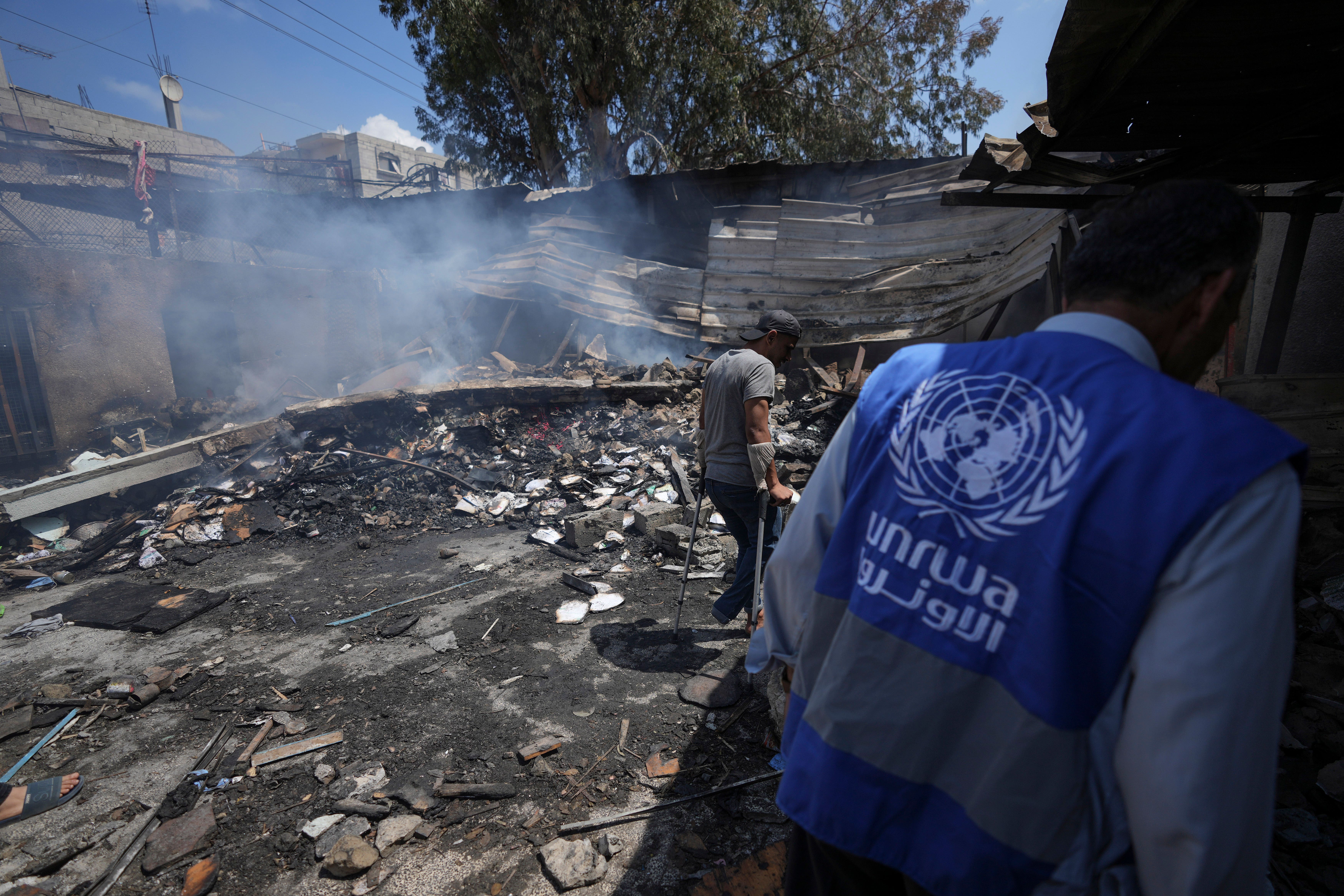Banning UN aid agency risks jeopardising humanitarian effort in Gaza – Starmer
Sir Keir Starmer urged Israel to allow UNRWA to continue its ‘essential work’ delivering aid to Palestinians.

Your support helps us to tell the story
From reproductive rights to climate change to Big Tech, The Independent is on the ground when the story is developing. Whether it's investigating the financials of Elon Musk's pro-Trump PAC or producing our latest documentary, 'The A Word', which shines a light on the American women fighting for reproductive rights, we know how important it is to parse out the facts from the messaging.
At such a critical moment in US history, we need reporters on the ground. Your donation allows us to keep sending journalists to speak to both sides of the story.
The Independent is trusted by Americans across the entire political spectrum. And unlike many other quality news outlets, we choose not to lock Americans out of our reporting and analysis with paywalls. We believe quality journalism should be available to everyone, paid for by those who can afford it.
Your support makes all the difference.Israel must ensure the main aid agency still operating in Gaza can continue its “essential work”, the Prime Minister has said after the country’s parliament effectively banned it.
Sir Keir Starmer said the UK was “gravely concerned” by the Israeli Knesset’s approval of two new laws that declare UNRWA (United Nations Relief and Works Agency) a terrorist organisation.
The laws, which will not come into effect immediately, would ban UNRWA from operating on Israeli soil, effectively barring it from working in Gaza or the West Bank where access is controlled by Israel.
In a statement on Monday evening, Sir Keir said: “This legislation risks making UNRWA’s essential work for Palestinians impossible, jeopardising the entire international humanitarian response in Gaza and delivery of essential health and education services in the West Bank.”
The Government has repeatedly called on Israel to increase the flow of aid into Gaza, where the UN has reported deliveries of humanitarian essentials “continue to be denied by the Israeli authorities, with few exceptions”.
Under its international obligations, Israel must ensure sufficient aid reaches civilians in Gaza
Sir Keir said: “The humanitarian situation in Gaza is simply unacceptable. We need to see an immediate ceasefire, the release of the hostages and a significant increase in aid to Gaza.
“Under its international obligations, Israel must ensure sufficient aid reaches civilians in Gaza.
“Only UNRWA can deliver humanitarian aid at the scale and pace needed.”
Israel accuses UNRWA of turning a blind eye to Hamas militants it claims have infiltrated its staff, including a small number of its 13,000 employees in Gaza who took part in the October 7 2023 attack on southern Israel.
The previous UK government suspended payments to UNRWA over allegations its staff had taken part in the attacks, but payments were resumed under Labour after an independent review found the organisation had “robust” mechanisms to ensure its neutrality.
Sir Keir added: “We pay tribute to the 222 UNRWA staff who have lost their lives in the conflict.
“UNRWA has a UN mandate to support Palestinian refugees. We urge Israeli lawmakers to ensure that UNRWA can continue to deliver its essential work.”
In a statement on X, formerly Twitter, Israeli prime minister Benjamin Netanyahu said: “UNRWA workers involved in terrorist activities against Israel must be held accountable.
“Since avoiding a humanitarian crisis is also essential, sustained humanitarian aid must remain available in Gaza now and in the future.
“In the 90 days before this legislation takes effect – and after – we stand ready to work with our international partners to ensure Israel continues to facilitate humanitarian aid to civilians in Gaza in a way that does not threaten Israel’s security.”
Around 1.9 million Palestinians, 90% of the population of Gaza, have been displaced from their homes and the territory faces widespread shortages of food, water and medicine.
Earlier, Foreign Secretary David Lammy told MPs allegations against UNRWA staff offered “no jurisdiction for cutting off ties”.
Asked by Conservative former minister Mel Stride if there would be “any consequence” for the Israeli government as a result of passing the Bills, Mr Lammy said he hoped the laws would not be implemented.
He said: “It cannot be in their interests for the only aid organisation, not just providing healthcare, but also schools for young people, and of course, working not just in Gaza but also in the occupied territories.
“It simply cannot be in their interests to do this, because they would have to then provide that themselves.”
Responding to a question from Labour MP Clive Betts on the possibility of sanctioning Israeli parliamentarians who had voted for the legislation, Mr Lammy said he “condemned in no uncertain terms” the “vile language that’s been used by extremist elements within the Israeli government”, adding that sanctions remain under review.
On Monday, the Prime Minister also met his Lebanese counterpart Najib Mikati in Downing Street to discuss the situation in the Middle East.
Offering his condolences for the “very many lives lost” in Lebanon, Sir Keir began his meeting with Mr Mikati by stressing the importance of securing an end to hostilities in the region.
Mr Mikati thanked Sir Keir for calling for a ceasefire in the region and for Britain’s support on humanitarian matters.